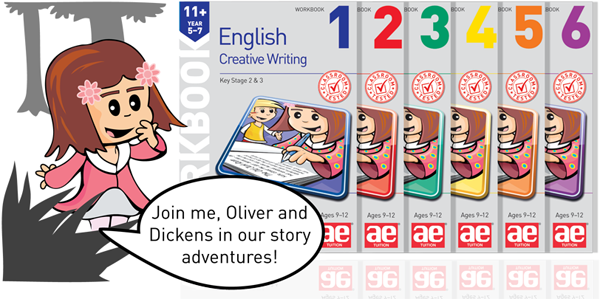What value does Creative Writing add to my child’s ability to pass the 11+ exam?

In December, I posted a list of 15 classic book titles that I suggested children should add to their reading lists. A few parents have asked why their children should read these books, as an old fashioned style of writing can make it a little harder to read. My response is always the same. These books have captured the imagination of millions of children over many generations. They have proven their worth as books that inspire creativity and a love of literature, which is so valuable to us as human beings. They can also motivate children to write, and this is very important for children’s intellectual development.
Parents may then ask: why is it essential for my child’s intellectual development that they learn to write creatively? After all, this skill is not tested a great deal in 11+ examinations and their GCSE English examination is a long way off.
The first thing I would say about learning English is that you can only really develop your ability to speak and write correctly if it is practised. Children participate in conversation a great deal throughout the day but it is only when they write things that they truly engage with the language in all its fullness. They learn how to spell, punctuate, use syntax and grammar correctly, and also how to communicate through the written word in an interesting way. This aids the development of a child’s critical thinking skills, giving them the ability to respond to written questions and provide coherent and cogent answers. Their development also benefits in all other school subject areas, as well as those relevant to the 11+ examination such as Mathematics, Verbal Activity and Non-verbal Reasoning because it is important for them to understand any question before they can answer it correctly.
More specifically, creative writing requires a child to develop their imaginative and literary skills simultaneously. They are required to work with their story ideas and then find a way to express them in an interesting and engaging way through the correct use of language.
In an article posted in the Telegraph in 2008, Fey Weldon (a novelist and professor at Brunel University), suggests that creative writing skills go beyond just the educational realm and can also teach children empathy by encouraging ‘children to think about what it’s like to be somebody else, to decide whether somebody is right or wrong’ and to ‘look at the world in a different way’.
AE Publications’ series of Creative Writing workbooks is an excellent way to help children build up their creative writing skills. The workbooks help children to create interesting characters and learn how to structure their stories. The children are set their own writing tasks and, if they complete the whole series, they would have written and redrafted six stories.

